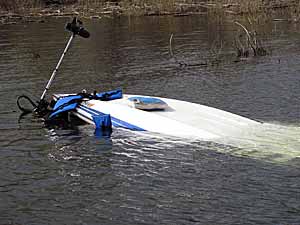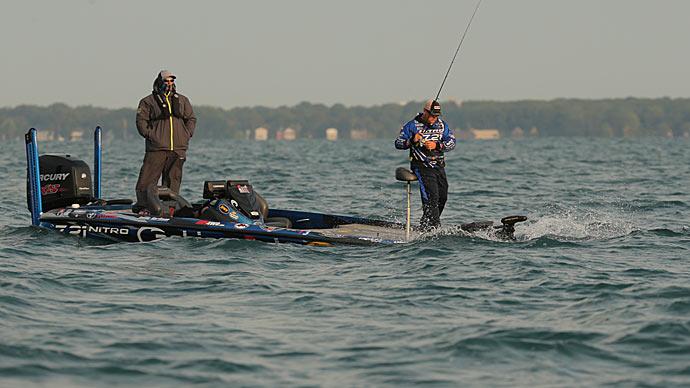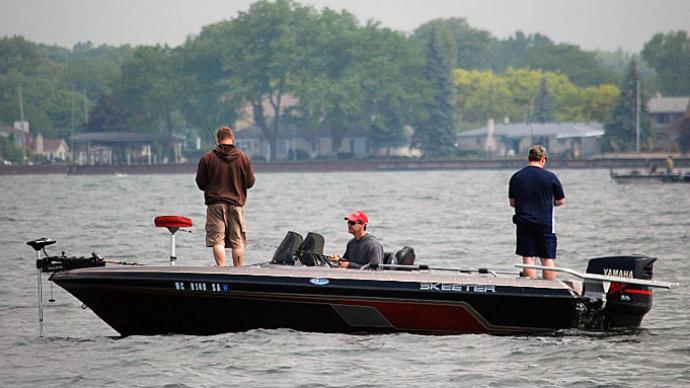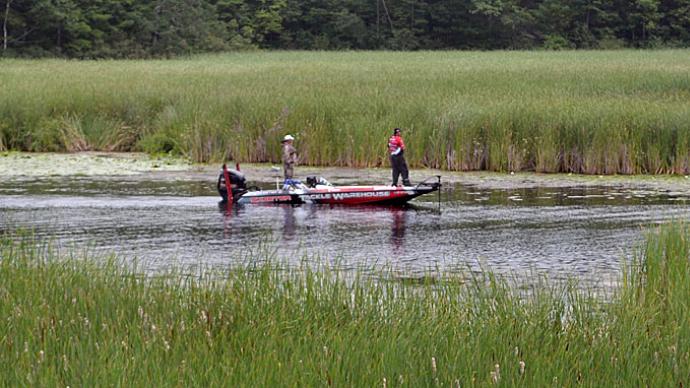
How many of you commonly make the statement? "I know this lake like the back of my hand." How many boaters believe that statement? How many of us have found underwater obstructions only to be thankful we were at idle speed?
I grew up fishing with my dad on Lake Benbrook near Fort Worth, Texas. To date, I still need to find out parts of that lake. Currently, I fish at Richland Chambers Lake near Corsicana, Texas. I have seen more of that lake at idle speed than 30 mph. Why? Because I am exercising something my dad taught me a long time ago - boater's common sense. (If you cannot afford to pay the replacement price then slow down!)
Then there are those who claim to know the lake or make statements referencing the number of years we have pleasure boated and fished a particular body of inland water. Are we exercising good common sense when returning to the marina at 30 to 40 mph at night without any other lights than those required by boating regulations? We are legally correct, but what about safe?
Many lakes have posted No Wake areas. Some lakes have No Wake areas posed near bridges. A common courtesy to those fishermen tied to, or anchored near, bridge pilings when fishing would be a no-wake passage. Some of us pro bass fishermen believe a speedy passage in our 200+ hp hydro-techno-fiberglass buzzbait is just as good as no wake. That does present a good argument. (Personally, I had much rather have a fast passage than a 20-foot+ land barge pass me at a point just before planing the monster.) The point to be made is that of common courtesy. As we approach a bridge, will we cause those anchored or tied near the piling any unnecessary hazard to persons or property? If our answer is yes, why not take a couple of minutes to make a safer passage for both watercraft? More especially if it is at night and you have determined numerous boats are closely anchored to each other.
How many of us fish alone? At night? How many times have we been trying to get out of a tree and stump-laden area alone, driving the boat with one hand and meticulously sweeping the areas in front of us with our trusty Q-Beam? (Thank you, B&B Manufacturing and Saf-T-Brite! I have been one of the above fishermen.) How many have spent the day on the lake and returned to the marina after dark? On a lake, I know "like the back of my hand"....Running at speeds more than 30 mph ... under bridges with night fishermen tied or anchored near bridge pilings. Where along the horizon were you looking for the anchor lights of the boats? Water level? Three feet above the water or higher? Did you consider that an anchor light on a tall mast may blend into the shore lights behind it? Did you see the boat or the bridge piling you nearly hit in your peripheral vision as you went under the bridge? How close was it? A lot of fiberglass damage or personal injury is caused in the event of an accident! (Can you afford to replace it?) Wouldn't it have been safer to slow down knowing there was a concentration of boats in the area? This brings us back to common sense. Please take a minute, slow down, and look around; we all have blind spots at night. Think good water safety and common courtesy. What feelings would you have for the passing boat if you were tied or anchored near bridge pilings or other structures?
Note: Recently, I was anchored at night near a bridge on a local lake. A 24-foot cabin cruiser crossed over the middle of my boat, his hull resting on the center console and the front seat pedestal as he crossed. His estimated speed was 30 to 40 mph. I took on an estimated 75 to 100 gallons of water as the other boat forced the front of my boat underwater. The incident took between 30 to 45 seconds from the time I initially saw him until he was on my boat and over it. Fortunately, no one was seriously injured.
EDITOR'S NOTE: The name of the author of this letter has been withheld. It's not because we're trying to keep anything secret, but because it could be a letter from anyone out on the lake. We must maintain safety and courtesy if our sport and those who participate in it are to remain free of stigmas. Tournament competitors, crappie fishermen, sailing enthusiasts, and anyone else have a right to be on the lake. It's up to each of us to respect the other's water. Accidents can happen, but they'll happen less if people are more courteous and conscientious while on the water. Be safe, not sorry.




